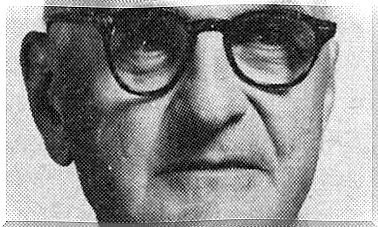When Overthinking Blocks You (analysis Paralysis)

There is a type of “overweight” that you have surely experienced at some time. We refer to those times when you think excessively and the whole world becomes a Gordian knot. Everything weighs, everything suffocates and not a single problem finds its solution. Almost without realizing it, the worries are duplicated and you feel paralyzed, thus giving shape to what we know in psychology as analysis paralysis.
It should be noted that the bad habit of overthinking is not a harmless thing. In addition to generating only inert and useless thoughts, you also increase the emotional charge. Life urges you, it demands that you react, that you do something in the face of those challenges that knock on your door, but you feel incapable of acting because anxiety and emotional anguish have already collapsed your mind.
Science tells us, those people who think (and doubt) their decisions much more, who go around a hundred times and shuffle a thousand options without reaching anything, end up suffering physical and psychological exhaustion, in addition to increasing the risk of suffering disorders anxiety and even depression.
The brain, faced with this excess of opposing mental processes and emotions, simply ends up “blocked.” Let’s analyze this phenomenon a little more.

Analysis paralysis, what does it consist of?
We are used to reading and hearing facts about how fascinating the human brain is. We already know concepts such as neuroplasticity, that capacity by which this fabulous organ can adapt and change based on our behavior, our experiences. We also know that its potential is incredible, that we can continue to learn and create new neural connections even in mature ages.
Somehow, current science dazzles us with the virtues of the human brain and mind. However, we neglect a specific fact: they also have limitations and have enemies that can lead us to states of great wear and tear. The main trigger for these situations is always stress and excessive worry.
Therefore, there is something that we must be clear about: those who think a lot are not wiser or find the most innovative solutions to life’s problems. What’s more, a common characteristic of people with a high IQ is tree thinking. It is going from one idea to another and then to another and from there, up to a hundred more.
They are processes in which thoughts never stop growing and growing until they are trapped in the mental branches of a true “rain forest.” In the end, the blockage arises and what psychologists define as analysis paralysis. Let’s see what it consists of.
Thinking a lot without getting anywhere has a cost: your life stagnates
Psychologist Catherine Pittman, a professor at Indiana University, warns us of something very important in her book
- Analysis paralysis arises when unnecessary and excessive thoughts are generated. It is turning around the problems to see them from all angles, but without drawing up proposals for action and, even less, for resolution.
- Analysis is not useful because we never make a plan or generate any kind of response. In the end, we get stuck, caught up in that mental overload.
- It is a thought that, far from being constructive, destroys us. It does so because what we know as an “opportunity cost” appears, that is, in the face of every challenge that could be a vital advance for us, we let it pass. It is being held captive by immobility and the suffering that it generates.
Analysis paralysis and the shadow of fear
“What would happen if? Should i do this? If I do that, will I make a fool of myself or will it go against me in the end? ” . These thoughts also fertilize the mental field of the phenomenon of analysis paralysis. Thus, in the midst of our concern, it is common that at some point we arrive at a possible idea, a solution or a proposal, however, at the moment, the wormwood of doubts and the hammer of fear that destroys everything appears.
That is to say, in addition to that excessive thinking in which we go around the bush until we create a forest where we end up lost, there also arises that emotional dimension dominated by fear and anguish. Analysis paralysis acts as a catalyst for suffering that we must handle a little better.

What can we do to stop overthinking?
If we are excessively professional thinkers, of whom we have half our lives with PhDs in this bad habit, we must become aware that it is necessary to make a change. One must be clear about a first aspect: thinking a lot is not synonymous with thinking well.
Not by spending hours thinking about something will a brilliant idea emerge. The most common is that doubts increase and we get trapped once again in the black hole of worries.
- We must practice psychological distance, spending less time in our head. So, when we see that we are thinking too much about something, let’s focus our minds on some task that motivates us: playing sports, listening to music, painting …
- It is also appropriate to refocus those thoughts. It is not about telling us that I am going to stop thinking. Rather, it consists of practicing that mental hygiene in which to ensure that each idea is logical, practical and with purpose. If the ideas that come to me only serve to feed concern, I replace them with more constructive ones.
To conclude, there is only one small detail to remember: the overactive mind can make life impossible for us. Let’s turn off that excessive noise and inject it with calm: this will be the way to regain our internal balance.









